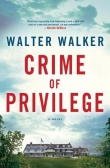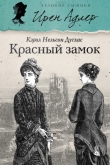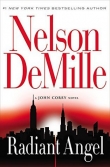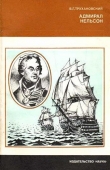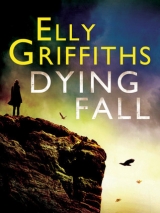
Текст книги "Dying Fall"
Автор книги: Elly Griffiths
Соавторы: Elly Griffiths
Жанр:
Триллеры
сообщить о нарушении
Текущая страница: 9 (всего у книги 20 страниц)
Michelle looked sceptically at her husband. She had heard him on the phone to Sandy and the word ‘disappointed’ hadn’t come up once.
Now Sandy and Nelson are bowling along the A583 to Kirkham. Nelson approves of Sandy’s driving style. So many young PCs these days have done advanced driving courses and drive like old ladies in hats but Sandy has a fine disregard for speed limits. ‘There’s not a traffic cop in the area would dare pull me in,’ he boasts. Nelson would like to say the same but he’s afraid that the uniforms (like the WPCs) are not as amenable in Norfolk. He is starting to wish that he’d stayed in Blackpool and become a fully fledged rule-breaking chauvinist. The move south has emasculated him.
‘Who’s this bloke we’re going to see?’ he asks as they bounce merrily over a mini roundabout.
‘Head of the history department at the university,’ says Sandy. ‘He was Dan Golding’s boss. He ought to know if there was any funny business going on. Mind you, most of these academic types are on a bloody different planet half the time.’
Nelson thinks of Ruth Galloway, who is definitely an ‘academic type’. Is she on a different planet? It’s true that sometimes their priorities don’t coincide – Ruth has, for example, signed Katie up with a library but hasn’t yet even thought about schools – but, for the most part, Ruth is definitely of this world. What’s more annoying, she’s currently in his part of the world. What the hell is she doing in Lytham? She knows that Dan’s death is being treated as suspicious, how dare she bring Katie anywhere near a murder enquiry? He fumes silently, watching the countryside fly past.
The windmill takes them both by surprise.
‘Bloody hell,’ says Sandy, as they screech to a halt on the gravelled drive. ‘Does he actually live in this thing?’
‘It’s like something from a crazy golf course,’ says Nelson, who played this particular game yesterday with his older sister Grainne and her family.
‘Must be worth a pretty packet,’ says Sandy. ‘How much do these lecturers earn?’
‘Not much,’ says Nelson, thinking of Ruth and her poky cottage on the edge of nowhere. ‘He must be a closet pop star or something.’
But Clayton Henry, who comes bustling bare-footed across the paved courtyard to greet them, doesn’t look like a pop star. True, he is wearing a top which instantly makes Nelson categorise him as ‘eccentric, possibly gay’, but he is also overweight and slightly anxious, rubbing his hands together and laughing loudly at Sandy’s windmill jokes.
Sandy introduces Nelson and Henry says, with a nervous attempt at banter, ‘Two DCIs. I’m honoured.’
‘It’s a special offer,’ says Sandy, deadpan. ‘Buy one, get one free.’
Professor Henry ushers them into the windmill and up what seem to be hundreds of twisty metal steps. Eventually, they reach a room at the very top of the house which Henry describes as his study. To Nelson it looks like something from one of those poncy design programmes that Michelle likes so much. The walls are glass, the floor shiny wood and there is nothing as utilitarian as a desk or an office chair anywhere. Sandy and Nelson sit on low sofas and Henry (to Nelson’s amazement) on what looks like a giant beach ball. ‘It’s for my back,’ he explains, bouncing gently. ‘Ergonomically sound.’
‘I’ll take your word for it,’ says Sandy. ‘Now, Professor Henry, as I said on the phone, I’d like to ask you a few questions about the late Daniel Golding.’
Nelson admires Sandy’s complete lack of what Judy would call ‘empathetic echoing’. He simply gets out a notebook and barks questions. How long had Professor Henry known Daniel Golding? Five years, ever since he came to work at Pendle. Was he a good archaeologist? Yes, excellent. He could probably have taken a more prestigious job elsewhere but his wife had got a job at Preston University and wanted to move north. (Nelson sympathises with this; it was at Michelle’s insistence that they moved to Norfolk and, deep down, he’s never forgiven her.) Was Golding still married? No, they divorced about three years ago, it was very sad. Girlfriends? Don’t know, but he was a good-looking chap, so it’s possible.
‘Was Daniel Golding popular in the department?’
For the first time, Clayton Henry falters. The ball stops bouncing and seems to deflate slightly.
‘Yes,’ he says. ‘He was a lovely man. Everyone liked him.’
‘Could you give me the names of his closest friends?’
‘Look,’ says Henry. ‘What’s all this about? Daniel’s death was a tragedy. There was nothing sinister about it, was there?’
Interesting choice of word, thinks Nelson. Also, by his reckoning, Henry should have asked this question about ten minutes earlier.
Sandy hardly looks up from his notebook. ‘We’re treating his death as suspected murder, Professor Henry.’
‘What?’ For a second, Henry seems to lose his balance and rocks wildly on the ball. His feet scrabble on the floorboards. Nelson looks at him with distaste – in his book bare feet are for women or children.
‘The fire in his house was started deliberately,’ says Sandy.
‘Oh my God.’
‘So we’re interested to know if anyone had a grudge against Golding, either professionally or personally.’
All the bounce has gone out of both Henry and the ball. He stands up and walks quickly round the circular room. Sandy and Nelson both watch him impassively.
Eventually, Henry comes to a halt between the two policemen. He sits heavily on the sofa next to Nelson.
‘I can’t think of anyone who would do this,’ he says. ‘Daniel was very popular, a little reserved perhaps, but a charming, personable man.’
‘Professor Henry,’ says Sandy. ‘In the past Pendle University has had trouble with the extreme right. Is there any chance that Daniel could have been involved with one of these groups?’
Henry laughs. For the first time, he sounds almost natural. ‘Daniel? Never! He was a real Guardian-reading liberal. Like the rest of us in the history department.’
Nelson thinks of Ruth, who also reads the Guardian. He can’t really see the point of newspapers himself, he prefers to get his news from the TV, but Michelle rather likes the Daily Mail.
‘Could these right-wingers have had something against Golding?’ asks Sandy.
‘Why?’
‘Maybe because he was Jewish?’
Henry is silent for a moment, then he says, ‘I don’t know. You can’t put anything past these idiots. But most people didn’t even know Daniel was Jewish. He wasn’t a religious Jew. Didn’t make a song and dance of it.’
‘He didn’t refuse to work on the Sabbath?’ asks Sandy. Nelson doesn’t know if he’s joking or not but Henry takes the question seriously.
‘No. On the contrary. He did most of his digging – archaeology, you know – at the weekends.’
‘Professor Henry,’ says Nelson. ‘Is it true that Daniel Golding had recently made a significant archaeological find?’
Sandy looks at his friend in amazement but Henry answers eagerly.
‘Yes. How did you …’
‘I have my sources,’ says Nelson grandly. ‘Was there any controversy linked to this discovery?’
Now Henry really does look worried. He glances from one policeman to the other and then down at his feet. Nelson waits. He knows the power of silence, of leaving a space for the suspect to convict themselves, and is, therefore, rather irritated when Sandy butts in.
‘Answer the question please, Professor Henry. Was there any controversy attached to this archaeological discovery?’
Henry rubs his face with his hand. Eventually he says, in almost a whisper, ‘The right-wing group on campus, they’re racists, idiots, not a brain cell between them. But there’s a sub-group, a kind of secret society. They call themselves the White Hand. They’re obsessed with history, particularly with King Arthur.’
‘King Arthur?’ echoes Sandy.
‘Yes. That’s what Dan thought he had discovered. The tomb of King Arthur.’
Sandy and Nelson look at each other. Sandy says, ‘Isn’t he meant to be buried in Cornwall somewhere?’
‘There are all sorts of legends,’ says Henry. ‘And some link Arthur to this area, to the northern borders. The thing is, this group, they’ve got a special thing about Arthur.’
‘What do you mean, a special thing?’ asks Sandy, sounding impatient. Nelson would have been impatient himself once but his association with Ruth has made him more tolerant.
‘For them he’s the big English hero,’ says Henry, still sounding scared. ‘They call him the White King, the High King. They wouldn’t want him associated with the Romans. They see the Romans as foreigners, invaders. And that’s where Dan uncovered the tomb. At Ribchester, a famous Roman site.’
‘And was Golding aware of any intimidation from the group, the White Hand?’ asks Sandy.
‘I don’t know,’ says Henry miserably. Nelson wonders if he’s telling the truth.
‘Do you know the names of anyone involved with this group?’
‘No,’ says Henry. ‘It’s all deadly secret. They wear masks when they appear in public, on demos and the like.’
‘Would they have known about Daniel Golding’s find?’
Clayton Henry attempts a jocular tone. ‘You know what universities are like. Nothing stays secret for long.’
‘No, I don’t know what universities are like,’ says Sandy. ‘Barely managed CSEs in art and metalwork. So you think that someone in this secret society may have found out that Daniel Golding had discovered the lost tomb of King Arthur?’
‘It’s possible,’ says Clayton Henry miserably.
‘Is it possible that one of these White Hand people killed Daniel Golding?’
‘No,’ says Clayton Henry. ‘I can’t believe that anyone would do that.’
‘You’d better believe it,’ says Sandy brutally. ‘Daniel Golding died of smoke inhalation. The door of his house was locked from the outside.’
Clayton Henry puts a hand over his face. ‘Don’t.’
‘Ever see anyone dead after a fire?’ asks Sandy. ‘Pretty nasty way to die.’
Henry’s shoulders shake. Nelson wonders if he’s going to break down altogether. Sandy, obviously thinking the same thing, moves in for the kill.
‘Professor Henry, do you know anything about Dan Golding’s death?’
Henry says nothing but another voice cuts through the air.
‘What the hell do you think you’re doing?’
The two policemen turn as a tall woman stalks into the room, followed by a small fluffy dog. The woman hurries to Clayton Henry’s side and puts her arm round him.
‘It’s all right, Clay. It’s all right.’
The dog, sensing tension, starts barking wildly. Nelson sees Sandy’s foot itching to kick it.
‘What’s going on?’ The woman looks up. Despite being casually dressed in sports clothes, she is extremely attractive, with the sort of classic good looks that need no adornment. Nelson guesses that she’s in her early forties. Is she Henry’s personal assistant? His therapist?
‘I’m Pippa Henry,’ says the vision. ‘Clayton’s wife. Can you please tell me what’s happening here?’
Nelson and Sandy exchange glances. Clearly there’s more to the bare-footed, ball-bouncing Henry than meets the eye. Not only does he live in a Grand Designs show home, he also has a show wife. A show wife who is looking distinctly angry. She scoops up the dog and glares at Sandy.
‘Well?’
‘We’re police officers,’ says Sandy woodenly. ‘Investigating the death of Daniel Golding.’ He shows his warrant card.
‘What’s that got to do with Clay? He was devastated by Dan’s death.’
‘We’re following several lines of enquiry,’ says Sandy.
‘Well, you’ll have to come back another day,’ says Pippa Henry. ‘Unless you want to arrest him, that is. Can’t you see how upset he is? He’s been under a lot of strain lately.’
For a second they glare at each other, the lugubrious policeman and the whippet-slim woman. The dog lets out a single shrill bark. Clayton sobs silently in the background.
‘We’ll come back another day,’ says Sandy.
CHAPTER 16
By the afternoon it is raining heavily. So when Ruth says, for the second time, that she really must be going, Caz offers to drive her. Ruth, who is feeling tired and full of food, accepts gratefully. It has been a good day, though. Pete arrived after lunch with the children: Ashley, Becky and Jack. Ruth, after she’d got over the shock of Ashley being about six feet tall, had to admit that they were nice kids and very good with Kate. Perhaps this is what Kate has wanted all along, three older children to pander to her every need. ‘It’s good for them,’ said Caz. ‘They don’t know any babies.’ Caz has a breezy, authoritative way with her children that Ruth much admires. Within two seconds of coming into the house, they have changed their sailing gear for indoor clothes and are playing trains with Kate on the sitting-room carpet. ‘You’re in charge, Ash,’ Caz had said. ‘We grown-ups want some time together.’
Caz, Pete and Ruth sat in the kitchen, drinking white wine and talking about life, children, jobs and whether everything has gone downhill since the Eighties.
‘The music,’ said Pete. ‘They have all this manufactured pop these days. The X Factor and all that.’
‘We had Kylie and Jason though,’ said Ruth. ‘It wasn’t all plain sailing.’
‘But we had Adam Ant and Boy George as well,’ said Caz. ‘Be fair.’
‘Do you remember,’ said Pete, ‘when Dan had that party and everyone thought that Boy George was coming?’
‘He was a friend of Dan’s sister,’ said Caz. ‘She knew lots of famous people.’
That was the way it had been all afternoon. Dan was mentioned often and with affection but they didn’t allow themselves to be caught up in nostalgia. Dan was the reason that Ruth was sitting there, in that state-of-the-art kitchen in the frozen north, but none of them mentioned this. They all said how good it was to see each other again, but they didn’t dwell on the fact that if they had wanted to be reunited they could have done it any time over the last twenty-odd years. Fire and death have brought Ruth to Lancashire but no one says these words either.
But as Ruth and Caz set out in Caz’s gleaming 4x4, a sleepy Kate in the back, Ruth knows that there is something she has to ask.
‘How far is it to Fleetwood?’
Caz glances at her. ‘About twenty minutes. Do you want to see where it … do you want to see Dan’s house?’
‘Yes please.’
They don’t speak much on the drive along the coast road, past Blackpool and the giant glitter ball and the roller-coaster reaching up to the sky. Despite the rain, families trail along the Golden Mile carrying candy floss and virulent cuddly toys won in arcades. Once past the north pier, the landscape changes again, with long stretches of windswept grass and grey sea. At Fleetwood the sea stretches out into an estuary, with boats beached high on the sand. They pass shuttered Victorian hotels, derelict dockyards, red-brick houses.
Ruth knows from reading up about Ribchester that the town used to be a thriving port. In fact, the Roman Road might well have led from Ribchester to Fleetwood. But now, in the afternoon rain, the town doesn’t look as if it is on the road to anywhere. It looks tired, as tired as Kate, who is fast asleep in Jack’s old car seat.
Caz turns down a side street and stops suddenly in front of a row of pebbledash houses. Nothing in Ruth’s imagination has prepared her for the horror of it. The middle house in the terrace has been reduced to a blackened stump, windows smashed, door boarded up. The walls are streaked with soot, half the roof is missing. Ruth thinks of Dan, trapped inside, choking with acrid smoke, breathing his last …
‘Are you OK?’ says Caz.
‘Yes,’ says Ruth, wiping her eyes. ‘It’s just … thinking about it.’
‘I know,’ says Caz. ‘I drove past the day I found out about it. You hear the words “house fire”, but you just can’t imagine the damage a fire can do.’
‘Why didn’t he jump out of the window?’ asks Ruth. ‘It’s such a tiny house.’
‘At the funeral his father told me that the bedroom window didn’t open,’ said Caz. ‘They all wondered why he didn’t get out though. He was found right by the door. I guess the heat was just too intense.’
Ruth remembers Nelson telling her that the door had been locked from the outside. She imagines Dan pounding away at the door, slowly losing consciousness. Someone had pushed petrol-soaked rags through the letter box. The hall must have been the white-hot heart of the blaze. Did Dan know, as he tried desperately to escape, did he know that he was going to die? Did he know that someone had killed him?
‘Shall we go?’ says Caz gently.
Ruth nods. As Caz performs a U-turn, with difficulty as the car is about the size of a Blackpool tram, Ruth looks back at the house. And she sees two people, a man and a woman, letting themselves in next door. They are youngish, dressed in jeans and windcheaters, and, for some reason, she thinks that she might know them. It is only when they are halfway back to Lytham that she realises who they were. Elaine and Guy. The Brideshead couple, who turn out to live in a run-down backstreet, next to a burned-out house.
*
‘Well,’ says Sandy, overtaking with a perfunctory blare of the horn. The rain has reduced visibility to almost nil but this has not affected Sandy’s driving. ‘What did you think of Professor Henry?’
‘He’s hiding something,’ says Nelson.
‘He’s got an alibi for the night of the fire, though.’ This last had been ascertained from Pippa Henry in an icy exchange on the door step. ‘He was with his wife all evening, apparently.’
‘She’s quite something, the wife,’ says Nelson.
‘You can say that again. How did a little pipsqueak like him ever end up with a woman like that?’
‘Sometimes beautiful women like ugly men,’ says Nelson. ‘Look at Michelle and me.’
‘You might be ugly but you’re not a pipsqueak in a pink jumper.’
‘Thanks.’
‘Clayton Henry’s afraid of something,’ says Sandy. ‘It might be his wife, it might be these White Hand bozos, it might be something else entirely.’
‘How much do you know about these White Hand people?’
‘Never heard of them,’ admits Sandy. ‘Tim, my sergeant, might know. He’s the one who’s put in all the work on these extreme right-wing groups. In general the people he’s investigating are pretty much what you’d expect, low income, not very well educated, wound up over immigration and lack of jobs. There are some very deprived areas round here, you know.’
Nelson looks out of the window. They have reached the outskirts of Blackpool now. He has never thought of the area as being deprived exactly but there’s no denying that the rows of glum terraces are not looking their brightest in the driving rain.
‘But the recent trouble at the university is something else,’ Sandy is saying, putting his windscreen wipers on full speed. ‘There have been some very nasty threats made, a real undercurrent of violence.’
‘What about all that King Arthur stuff? Have you come across anything like that before?’
‘No, that’s a new one on me, I must admit, but nothing would surprise me about these idiots. They have all sorts of heroes – Hitler, Enoch Powell, Boadicea, Asterix the Gaul.’
‘Asterix? Isn’t he French?’
‘He stood up to the Romans, didn’t he? I tell you, these people would hero-worship anyone, even the French.’
*
The image of that horrible blackened house remains in Ruth’s head all evening. When she gets back, Cathbad is still out and the rain is still falling. Kate wakes up as soon as they enter the cottage and, deprived of her teenage minions, she is grumpy and determined not to be placated. Ruth makes toast for them both (she is too tired to attempt any Cathbad-style gourmet cooking and, besides, she’s still full up from lunch) and prepares to start the nighttime routine. Kate cheers up slightly in the bath (whether it’s to do with being a Scorpio or not, she does love the water), but as soon they go into the bedroom, she starts to look mutinous. Ruth tucks her into the double bed, gives her a bottle and reads interminable multi-lingual adventures featuring Dora the Explorer. Kate endures this for a while, watching Ruth out of her big dark eyes, so like her father’s. But as soon as Ruth closes the book and prepares to leave the room, Kate starts to cry. Eventually Ruth lies down on the bed next to her daughter. The rain batters against the windows and the little house seems almost to shake under the onslaught. For once Ruth is happy to have near neighbours. Through the curtains she can see the orange glow of streetlights, hear cars going past. If this was the Saltmarsh she’d have only the wind and the rain for company. And Flint, of course. She wonders how he is. Perhaps she should text Bob.
She looks down at Kate. The bottle has fallen out of her hands and she seems to be breathing heavily. Slowly, trying to make herself weightless, Ruth sits up and swings her feet to the floor. Kate murmurs but doesn’t wake. Leaving the bedside light on, Ruth tiptoes out and goes in search of her mobile phone. Where can she have left it?
The cute little house seems different at night, furniture seems to loom at her or appear in odd places. Surely that bookcase wasn’t there before, thinks Ruth, rubbing her shins. She thinks of Dame Alice’s cottage, the little white house in the hollow of the hills. Has Cathbad decided to stay the night with Pendragon? If so, he’d have told her surely. Yes, he’s probably left a message on her bloody phone. Where is the damn thing? She goes into the kitchen, which still smells of toast. She eats a soggy crust, rejected by Kate. Stop eating, she tells herself sternly. If you don’t eat for a year maybe you’ll be as slim as Caz. But being thin has never seemed worth being hungry, which is one reason why Ruth weighs nearly thirteen stone.
She stops. A floorboard creaks upstairs. Could it possibly be Kate? There’s no stair-gate at the cottage and Ruth is in constant fear that Kate will get up in the night and fall down the stairs. Ruth goes upstairs and looks into the master bedroom. Kate is sleeping deeply, arms flung out. The milk bottle is dripping on the floor and Ruth picks it up. Then she goes into Cathbad’s room. She is not sure what she is expecting to see, but the bed, with its pink flowery duvet, is neatly made and the ballerinas gaze down demurely from the wallpaper. There are no clothes anywhere; Cathbad must have packed everything into the little wardrobe under the eaves. Unlike Ruth, who still has half her stuff in her suitcase. There is a book next to the bed. Ruth picks it up. Wicked Enchantments, it’s called, A History of the Pendle Witches and Their Magic. The cover shows a cauldron and a black cat. Ruth puts the book down hastily but, as she does so, a photo falls out. Ruth picks it up, trying not to look but, of course, she has seen who is in the picture. Judy, standing on the beach, her hair loose, looking entirely unlike a policewoman. Ruth tucks the photo back into the book and goes downstairs. Where is Cathbad? Has he got lost in the winding paths through the Pendle Forest? Has he strayed into a local coven? If so, he’s definitely likely to stay the night.
Ruth goes back downstairs and – hooray! – finds her phone in her cagoule pocket. She clicks on to Messages.
Just one.
Ladybird, ladybird, fly away home. Your house is on fire. Your children are gone.
Ruth stands in the hall, frozen in terror. She sees the ruined house with its blank, staring windows. She thinks of Dan in his own hallway, trying desperately to open the locked door. Then she turns and runs back upstairs. Kate is still asleep. Ruth turns off the bedside lamp because lamps can overheat, houses can burn down. Instantly her phone clicks into life.
A new message.
Don’t turn out the light.
Ruth has had enough; she rings Nelson.


